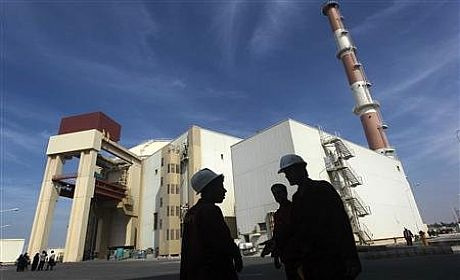Earthquake Provides Good Excuse for Pressure

The Persian Gulf Cooperation Council has demanded the dispatch of a team of technical experts to evaluate the possible damages to the Bushehr power plant following the earthquake. From what angle can this demand be interpreted? Are they really concerned about the earthquake and its damages or are they looking for an excuse to increase pressure on Iran?
This issue can be studied from two aspects:
A positive look: Considering the fact that the member countries of the Persian Gulf Cooperation Council are located near the Bushehr atomic power plant, and that the neighboring countries have commonalities on many issues, including security issues, therefore, if radioactive materials leak from this power plant, it can cause damages both to Iran and to these countries and have dangerous ecological effects. Therefore, they might be concerned from this point of view and demand the removal of these threatening components. This is their natural right.
A negative look: Considering the background, approach and actions of the member countries of the Persian Gulf Cooperation Council, they have, from the beginning of its establishment, used different excuses to lead to more pressure being exerted from the international community on Iran. As you know, the main reason behind the formation of this council was to help and support Saddam in his war against Iran. Hence, it is obvious that during the imposed war, the members of the Persian Gulf Cooperation Council gave the most aid to Saddam, the enemy of the Iranian nation, and his Baath Party. A part of these aids were in the form of oil sales, and some Persian Gulf littoral states, including Kuwait, put their ports and also islands such as Bubiyan and Warbah at the disposal of Iraq so that Iraq could export oil. They also gave different kinds of loans to Saddam and Iraq’s Baath regime who was the enemy of the people of Iran. After the end of the war, they continued their hostilities against Iran, particularly, since 2003, the United Arab Emirates has claimed that the three islands of Abu-Musa and the Greater and Lesser Tunbs belong to this country and that Iran has occupied them. This issue has repeatedly been on the agenda of the foreign ministers of this council. They have regularly issued statements against Iran claiming that these islands must be returned to the Emirates.
This council also supports the positions of Iran’s enemies with regard to Iran’s nuclear activities and emphasizes the point that Iran’s achievement of nuclear weapons could create serious threats against the countries of the region. Thus, their positions are very clear and hostile.
Considering the fact that Iran has stated that no damage has been done to the Bushehr power plant, could the insistence of the Persian Gulf Cooperation Council have other meanings?
The magnitude of the earthquake which occurred last week in Bushehr was 6.3 on the Richter scale. And the IAEA and other supervising centers and Russia, which has helped in the construction of this site, have all announced that this power plant is resistant against even 8.4 magnitude earthquakes. In fact, the Bushehr power plant can resist an earthquake of this magnitude while the earthquake in Bushehr was too weak to shake this plant and cause leakage. Despite Iran and Russia’s statements about no damage being caused by the earthquake to this plant, such a demand by the countries of the Persian Gulf Cooperation Council to inspect this issue is aimed at creating a psychological atmosphere in which they propose the idea that Iran’s nuclear activities can be threatening for the countries of the region. Thus, this demand must be considered in line with the hostile positions of the member countries of this council.
To what extent will this demand be practical in international relations and in IAEA regulations?
This matter can be referred to organizations such as the IAEA. These countries can ask the IAEA to send inspectors which should be done with the agreement of the Islamic Republic of Iran’s officials. It is not that any organization can decide on this matter and dispatch inspectors. Naturally, this issue is within the power of Iran’s government and its agreement is necessary for sending inspectors.

